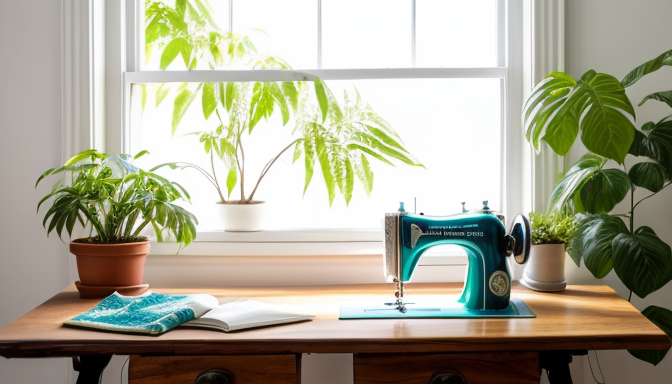In today’s world, where environmental concerns are at the forefront, sustainable fashion has become more than just a trend; it’s a movement. With a growing awareness of the impact of our clothing choices on the planet, many are asking, “How can I make a difference?” The answer lies in understanding the principles of sustainable fashion, which encompass eco-friendly materials, ethical production practices, and the power of informed consumer choices.
When we talk about sustainable fashion, the conversation often begins with materials. Fabrics like organic cotton, bamboo, and Tencel are not just buzzwords; they are revolutionizing the fashion industry. These materials are grown without harmful pesticides and require less water, making them a better choice for our planet. For instance, did you know that organic cotton uses 91% less water than conventional cotton? Choosing garments made from these eco-friendly fabrics can significantly reduce your carbon footprint and contribute to a healthier environment.
But it’s not just about the materials; ethical production practices play a crucial role in sustainable fashion. This means supporting brands that prioritize fair wages, safe working conditions, and transparency in their supply chains. By choosing to shop from ethical brands, you’re not only investing in quality clothing but also in the well-being of the workers behind those garments. Imagine the impact we could make if every consumer chose to support brands that align with these values!
As you navigate your wardrobe choices, remember that every purchase is a vote for the kind of world you want to live in. Stay updated on the latest fashion trends, seasonal style guides, and lifestyle inspirations to elevate your daily routine while making a positive impact on the planet.
Understanding Sustainable Materials
In the ever-evolving world of fashion, sustainable materials are taking center stage, and for good reason! These innovative fabrics not only look great but also play a crucial role in reducing our environmental footprint. Imagine wearing clothes that are not just stylish, but also kind to the planet. That’s the beauty of sustainable materials!
So, what exactly are these eco-friendly fabrics? Let’s dive in! Some of the most popular sustainable materials include:
- Organic Cotton: Grown without harmful pesticides, it’s softer on your skin and the environment.
- Tencel: Made from sustainably sourced wood pulp, this fabric is biodegradable and has a low environmental impact.
- Recycled Polyester: Created from post-consumer plastic bottles, it helps reduce waste while offering durability.
These materials are revolutionizing the fashion industry by promoting a circular economy. They encourage recycling and upcycling, meaning that instead of ending up in landfills, textiles can be transformed into new products. By choosing clothing made from sustainable materials, consumers are making a powerful statement about their values and priorities.
Additionally, sustainable materials often come with a lower carbon footprint, which is essential in our fight against climate change. When you wear sustainable fashion, you’re not just making a style choice; you’re participating in a movement towards a healthier planet. So, the next time you’re shopping, remember: every small choice counts!

Ethical Production Practices
In today’s fast-paced fashion world, are more crucial than ever. But what does it really mean to be ethical in fashion? It’s not just a buzzword; it’s a commitment to ensuring that every piece of clothing is made with respect for both people and the planet. Imagine a world where the clothes you wear are not just stylish but also supportive of fair labor practices. This means that the workers who create your garments are paid fair wages and work in safe conditions. Sounds good, right?
When you choose to support brands that prioritize ethical production, you’re not just making a fashion statement; you’re making a positive impact. But how can you identify these brands? Look for certifications such as Fair Trade or GOTS (Global Organic Textile Standard). These labels are like a badge of honor, ensuring that the products meet strict environmental and social criteria.
Moreover, many ethical brands are transparent about their supply chains. They share stories about their artisans and the processes behind their products, which adds a personal touch to your wardrobe. Remember, every time you buy a piece from an ethical brand, you’re saying no to exploitation and yes to sustainability. So, why not take a moment to explore your options and make choices that align with your values?
In conclusion, embracing ethical production practices not only enhances your style but also contributes to a brighter future for the fashion industry. After all, fashion should be about more than just looking good; it should feel good too!
Frequently Asked Questions
- What is sustainable fashion?
Sustainable fashion refers to clothing and accessories that are designed, produced, and consumed in a way that is environmentally friendly and socially responsible. It emphasizes the use of eco-friendly materials, ethical labor practices, and a focus on reducing waste.
- How can I identify sustainable materials?
Look for fabrics like organic cotton, Tencel, hemp, and recycled materials. These fabrics are often labeled as sustainable and are produced with less impact on the environment. Checking certifications like GOTS (Global Organic Textile Standard) can also help!
- Why is ethical production important?
Ethical production ensures that workers are treated fairly, with safe working conditions and fair wages. Supporting brands that prioritize ethical practices contributes to a more just fashion industry and helps combat exploitation.
- How can I make more sustainable choices when shopping?
Start by researching brands and their practices, choosing quality over quantity, and opting for second-hand or vintage clothing. Remember, every small choice counts towards a bigger impact!